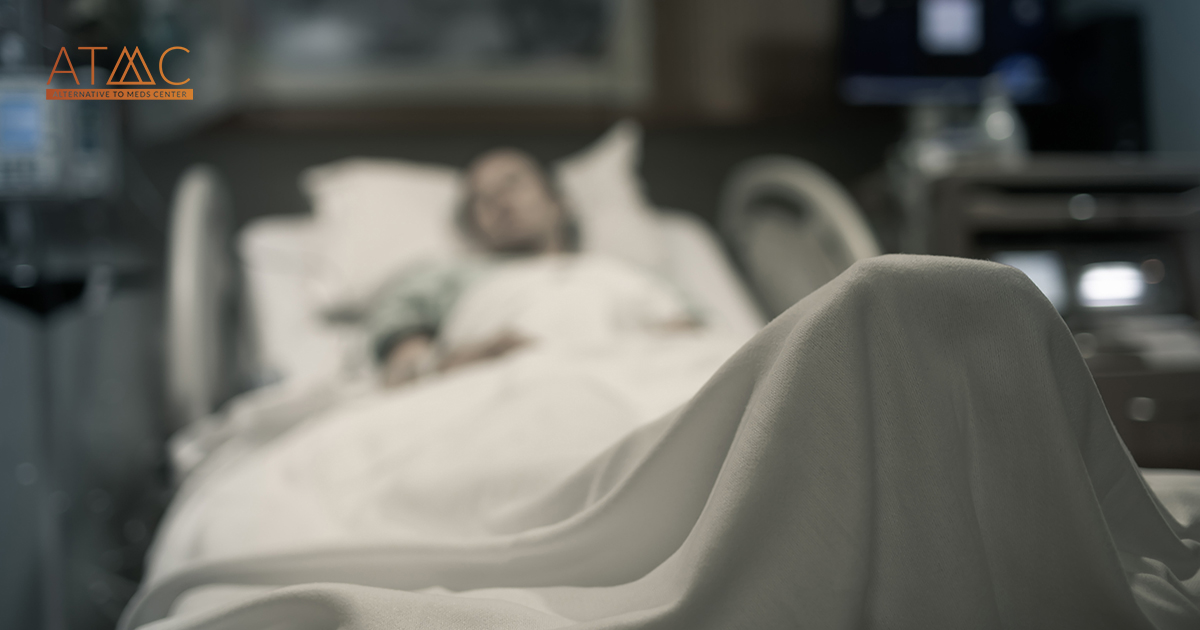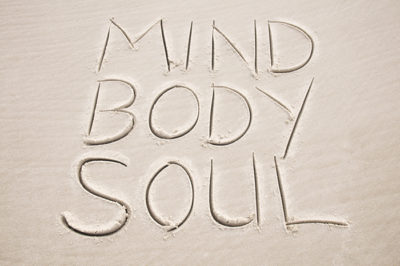Is a Psychiatric Hold Necessary? Common Reasons Someone Could Experience a Psychiatric Hold
 Photo from Getty Images
Photo from Getty Images
Originally Posted On: https://www.alternativetomeds.com/blog/psychiatric-hold-reasons/
The words “psychiatric hold” often conjure inaccurate depictions of psychiatric facilities from movies and TV. Intimidating nurses, constant medication streams, padded cells, and limited time outside have all become synonymous with inpatient care thanks to films such as Girl, Interrupted and One Flew Over the Cuckoo’s Nest. However, these depictions are far removed from the reality of inpatient psychiatric care. In fact, holistic inpatient programs are geared towards helping you regain a sense of stability after a mental health crisis or substance abuse issue, letting you feel in control of your life and your mind.
So, what is a psychiatric hold? How are they different from their depictions in the media today? Most importantly, when can a psychiatric hold be used to help better a person’s chances at improving their mental health?
What Is a Psychiatric Hold?
Commonly referred to as involuntary commitment, a psychiatric hold is a legally mandated stay at a psychiatric facility—in most states, 72 hours or less.1 The intent of such a hold is aimed at providing a safe space and professional care to those going through a mental health crisis. Holds occur both so individuals do not harm themselves or others as well as to help them recognize their own need for continued mental health care.
With standard mental health facilities, those sent into a psychiatric hold are quickly evaluated by doctors and given medication to ease their symptoms. However, in these cases, evaluations can be hastily performed, and the end goal may be sedation rather than determining the root of the issues presented. Under these circumstances, a hold may create more problems for the patient.2
Once the person has stabilized, continued treatment that takes place at a holistic facility can shift focus to the underlying medical and psychological reasons for the struggles faced by the individual. For that reason, a hold can be beneficial for individuals in crisis, both for the person’s own security and that of the persons around them. With help, they can begin to address mental and physical health holistically, under the supervision of trained medical and mental health professionals.
Is a 5150 Order the Same As a Psychiatric Hold?
A 5150 order and a psychiatric hold are two terms to describe the same legal process. As such, they both entail the same kind of treatment. Typically, a 5150 order is granted when an individual is deemed harmful to themselves, others, or unable to adequately handle their own issues.
Depending on the mental state of the individual, learning when to request a 5150 order or psychiatric hold is extremely important. Start by considering the wellbeing of the person involved and the potential danger they pose to themselves or others. For example, if a loved one is discussing suicide or concrete plans to harm another person around them due to a severe or untreated mental illness, they might need to be placed on a psychiatric hold. On the other hand, if a friend of yours makes a brief comment about suicide or harming themselves, it might be more beneficial to have a heart-to-heart conversation about how they’re feeling before turning to psychiatric care.
Warning Signs of Self Harm
One of the most frequent triggers for a psychiatric hold is a threat of self-harm. Often, individuals also threaten to hurt other people.3 Self-harm comes in various forms and can be a sign of unchecked mental health concerns. Harmful thoughts and plans for suicide are hard to think about, let alone talk about with your loved one. However, staying in touch and making sure your loved ones have sound mental health is key to ensuring their wellbeing and safety.
To keep yourself and others around you safe, look for these warning signs of suicidal thoughts or ideation:
- Making frequent remarks about how life is meaningless or expressing feelings of hopelessness or extreme discontent with no possibility of things getting better
- Becoming extremely disinterested in formerly beloved activities, seemingly out of the blue
- Frequent and sudden mood changes, featuring either extremely positive or extremely negative emotions
- Uncharacteristically dangerous behavior
- Very anxious behavior
- Isolation, cutting one’s self off from others, or acting cold and disconnected
- Family medical history concerning mental health issues or substance abuse issues
- Traumatic experiences or unresolved abuse trauma
- Drug or substance addiction and use
Although these behaviors can be indicative of a severe mental health crisis, it is best to respect the privacy of the individual and attempt to reach out before turning to a psychiatric hold. However, should the situation become distressing, a psychiatric hold is always preferable to the individual acting on their desire to hurt themselves or others.
Why Do People Go Into a Psychiatric Hold?
 Photo from Getty Images
Photo from Getty Images
Individuals going through a crisis who are in need of psychiatric help are often in need of an intervention to help them seek the care they need. Any reasoning behind a 5150 order should always be intended to preserve the best interest of the individual involved. Ensuring that their best interests are maintained and protected during a psychiatric hold is of the utmost importance. The two most common reasons people are placed on a psychiatric hold include mental health issues and issues stemming from substance abuse.4
Mental Health Issues
Mental health issues are a diverse set of conditions, all requiring differing amounts of care, separate treatment plans, and individual attention. Unfortunately, maintenance is difficult for those experiencing mental illness, especially for those with co-occurring disorders. Prescriptions, self-care methods, and life outside of having a mental illness can all coincide and exacerbate mental health conditions. The situation can have unfavorable consequences concerning mental health.
One of the main ways that external pressures manifest in people with mental health concerns is through a mental health crisis.5 Violent outbursts, uncontrolled actions, and suicidal thoughts or actions can all be considered part of this crisis. Often, these situations are remedied through a psychiatric hold. In a psychiatric institution, those struggling with their mental health can have access to constant, supportive care in an environment that promotes healing and rehabilitation after such a taxing experience. It is hoped that individuals will be equipped to continue seeking mental health help following the hold.
Issues Stemming from Substance Abuse
Substance abuse, especially the abuse of certain narcotics, can cause a variety of psychiatric outcomes that could warrant a 5150 order. Often, stimulants such as methamphetamines and phencyclidine (PCP) cause violent outbursts in their users. This can cause others to feel in danger. Psychiatric holds can be used to place a loved one struggling with substance abuse in a safe environment that can help them medically detox and come down from an aggressive high.
It is important to note that those using depressants such as barbiturates or opiates have more subdued actions when high. However, these drugs can trigger depressive episodes in users, which can further trigger any existing issues concerning self-harm or suicidal ideation. For these individuals, placement in a facility well-equipped to handle any issues spurring from depressants can help prevent the individual from committing acts of self-harm. In addition, a hold can mitigate the negative outcomes of their substance use and provide a comfortable environment for withdrawal and detox.
What Is Withdrawal?
Certain drugs cause dependencies stemming from neuroadaptation. Stopping active substance abuse, as well detoxing from prescription drug use, can cause the brain and body to go into withdrawal, as it no longer knows how to function without the needed chemicals. Withdrawal can be extremely dangerous if handled improperly. If someone you know is going through severe substance withdrawal, a psychiatric hold might be the best way to ensure that they stay safe through such a difficult time.
What are the Symptoms of Withdrawal?
 Photo from Getty Images
Photo from Getty Images
The top four abused substances that have significant withdrawal symptoms include:
- Benzodiazepines. These drugs are often used to control anxiety and depression. Typically, after around 1-4 days, heavy users start to begin the withdrawal cycle. Symptoms can include anxiousness, an increase in body temperature, faster heart rate, irritability, and nausea. After the peak of withdrawal, these symptoms could be felt for several months to a year after heavy use.
- Heroin. Heroin is one of the most used substances across the country, with over 900,000 people in the United States actively using.7 Twelve hours after the last use, withdrawal symptoms begin. Common heroin withdrawal symptoms typically include tiredness, flu-like symptoms, chills, body aches, trouble sleeping, anxiousness, and overall irritability. These symptoms peak after 24-48 hours but can be felt for several months to a year after last use, depending on the user’s dependency.
- Alcohol. Alcoholism, because of its effect on the central nervous system, is extremely hard to treat once in withdrawal. Symptoms of alcohol withdrawal begin after 8 hours without alcohol and peak around 24-72 hours. Alcohol withdrawal symptoms include sweating, inability to sleep, stomach issues, and headache. Some experience delirium tremens, which is a condition that puts the individual into a temporary state of psychosis that can be dangerous if not properly managed. Alcoholism is very hard to overcome, and it can take years to regain and maintain sobriety.
- Cocaine. Cocaine has become increasingly popular for its energy-boosting properties, especially in party settings or nightclubs. A few hours after the last use, cocaine withdrawal can cause depression, lethargy, inability to sleep or oversleeping, and paranoid behavior. Users may experience extreme drug cravings that seem insatiable. The peak of these symptoms is within the first week without using cocaine, and withdrawal lasts anywhere from one week to 10 weeks.
Regardless of symptoms, withdrawal is not an easy process and can be hard to handle if important symptoms are not taken seriously or attributed to substance use. Inpatient services and psychiatric holds allow for signs of withdrawal to be evaluated and handled by trained medical doctors and mental health professionals. Individuals are supported by a setting that helps keep them safe and comfortable throughout a very confusing time.
Can You Voluntarily Surrender Yourself for a Psychiatric Hold?
Yes and no. A 5150 order is court-mandated, so submission of an entrance into a psychiatric hold is not voluntary. Because you are legally deemed in need of a psychiatric hold, you can willingly comply with the 5150 order, but you cannot submit one against yourself. You can, however, check yourself into a psychiatric facility if you feel the need to be under psychiatric care.
In some instances, a long-term order may be necessary to place an individual deemed a threat to themselves or others on a 14-day psychiatric hold. This order gives the individual the opportunity to stand trial to determine whether they are deemed in need of a psychiatric hold. Similar to a 5150, this order is court-mandated and non-negotiable. However, the inclusion of a hearing concerning the actions of the individual helps create a broader picture of the incident, helping the court determine the best method of care to help the individual improve.8
Alternatives to Prescription Treatment Plans
 Photo from Getty Images
Photo from Getty Images
Healing isn’t all about medication or compounding diagnoses—instead, it stems from the nourishment of the soul. Alternative to Meds focuses on creating a treatment plan best suited for the patient’s needs without pushing pharmaceuticals as a cure-all. Our lovely inpatient center is equipped with a plethora of treatment options aimed at helping those struggling with addiction or mental health concerns to live an organic human life beyond their diagnosis.
Information contained on this page is provided by an independent third-party content provider. Frankly and this Site make no warranties or representations in connection therewith. If you are affiliated with this page and would like it removed please contact pressreleases@franklymedia.com



